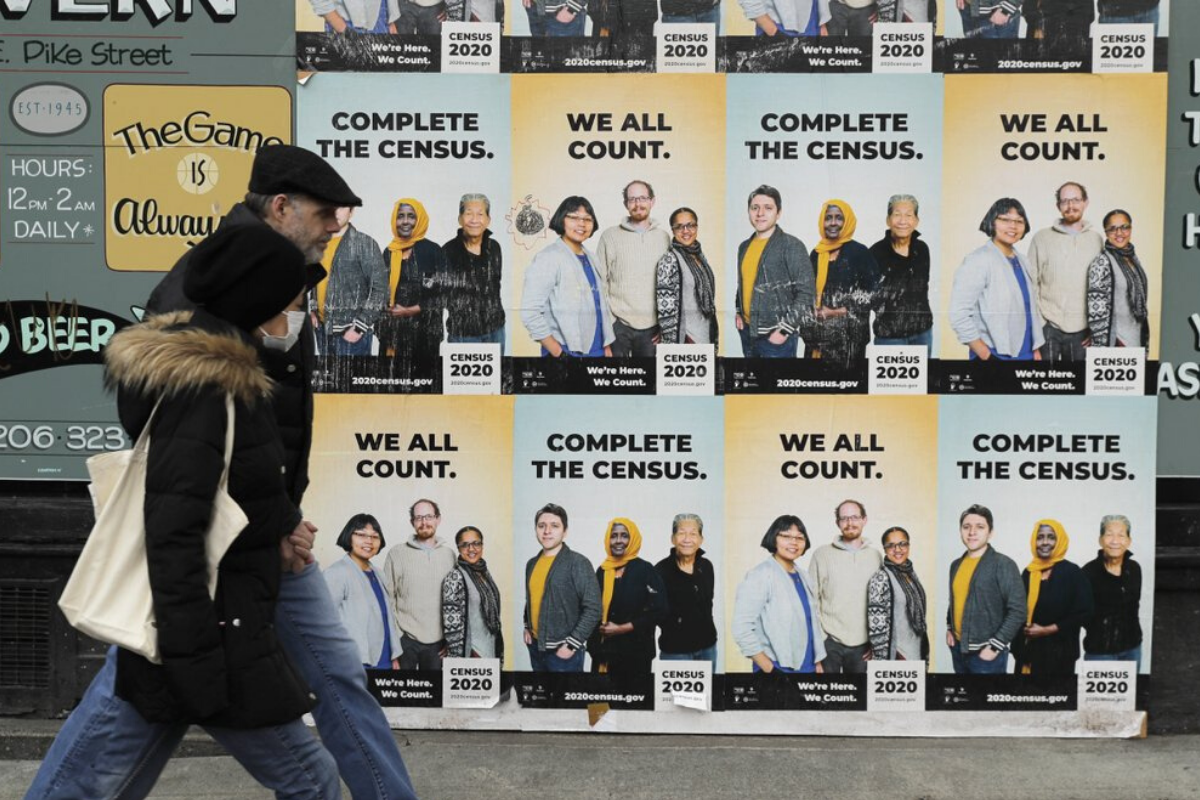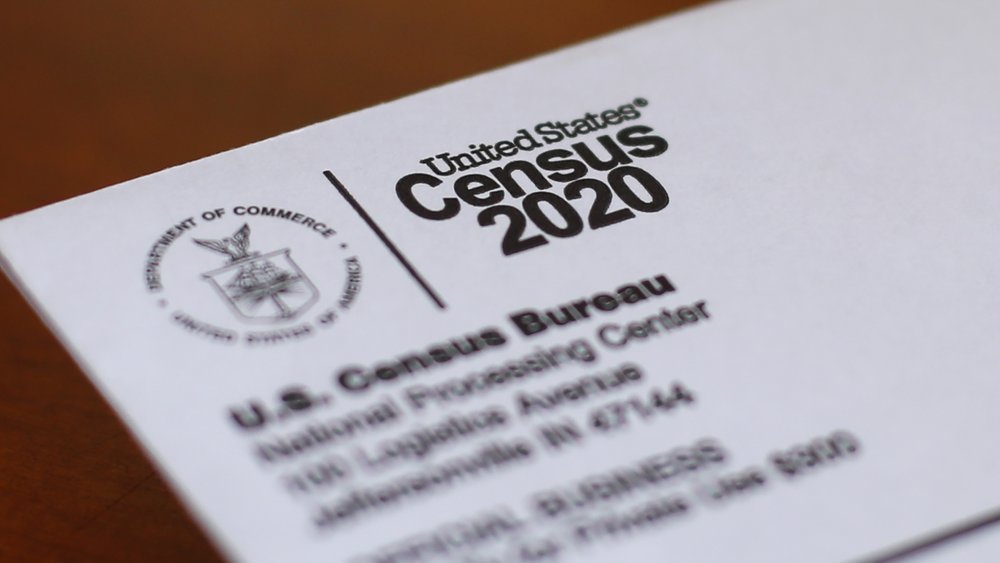

In this Wednesday, April 1, 2020 file photo, People walk past posters encouraging participation in the 2020 Census in Seattle’s Capitol Hill neighborhood. (AP Photo/Ted S. Warren, File)
According to the Census page, so far the national self-response rate of the 2020 Census is 49.4%. To gear up the efforts and educate and update the public on crucial information on the 2020 Census, NALEO held a virtual town hall on Thursday afternoon titled “Census 2020 + Latinx.”
Hosted by Lizette Escobedo of NALEO and joined by a slew of leaders and advocates —Arturo Vargas (CEO of NALEO), Sindy Benavides (CEO of LULAC), Serena Prammanasudh (Census Project Manager with United We Dream), Maria Teresa Kumar (President at Voto Latino), Lucy Flores (CEO at Luz Collective), and Janet Murguía (CEO at UnidosUS)— the group covered topics ranging from security and privacy, funds allocation, and how the coronavirus pandemic has changed the way in which activists are reaching out to communities.
Here are important takeaways from the virtual town hall.
The 2020 Census Will Not Include the Citizenship Question
One of the setbacks in trying to get Latino communities to participate is that many still have the notion that a citizenship question is included in the questionnaire. Even though the Trump administration did want to have the question added, they later dropped their effort since they were “faced with mounting deadlines and a protracted legal fight.” To dispel any remaining skepticism, Vargas reiterated that the 2020 Census will definitely not include a citizenship question, and that applies to the online form, or if you respond via mail or phone.
It’s worth also noting that this year’s Census will come in 13 languages, including Spanish.
Privacy and Security Concerns
Let’s face it: many communities are afraid that authorities will have access to their personal data and use it against them. Prammanasudh assured the public that it’s illegal to use census data. She’s right. According to the Census Bureau, “Under Title 13, the Census Bureau cannot release any identifiable information about you, your home, or your business, even to law enforcement agencies. The law ensures that your private data is protected and that your answers cannot be used against you by any government agency or court.”
Yet, Prammanasudh says there’s still fear and skepticism. She got a little personal. Prammanasudh relates to the fight of the Latino communities. “As an Asian American, our struggle to be seen, to be heard are one in the same.” She added, “we all have the shared history of being intentionally undercounted in the U.S. There’s been an intention for disenfranchisement. We can reclaim that power.”


In this Sunday, April 5, 2020 file photo, An envelope containing a 2020 census letter mailed to a U.S. resident is shown in Detroit. (AP Photo/Paul Sancya, File)
Census Data Used To Allocate Funds Towards Our Communities
Perhaps not many know this, but the federal government uses the census data and statistics to allocate the funds necessary to drive our local communities.
“The reason the census is so important for our communities is to ensure not only that we’re fairly represented, but make sure we don’t leave money on the table,” Kumar said.
While she acknowledged that tough times are ahead of us, she goes back to the Latino community’s force, “we’re the second largest demographic and the youngest population in the country.” That same sentiment was echoed universally by everybody on the virtual town hall.
Murguía pointed out how the Census data is used to properly distribute funds where they are most needed through federal programs, “Medicaid, Head Start, Supplemental Nutrition Assistance Program (SNAP) and for women, infants, and children (WIC), school lunches, Pell Grants—they should include our community and if we don’t participate in the Census, we don’t get the funds.” She added, “if we do not participate in the Census, we will continue to be left behind.”
Basically, when our communities have data to support our arguments, we can make our case. Politicians will have no more excuses to hide behind.
How the Coronavirus Pandemic Is Affecting the 2020 Census
On a pandemic-free world, census workers would be going door-to-door trying to get residents to fill out the forms. Now that’s impossible. That is why the deadline to self-respond has been extended to October 31. Census workers are hoping to go knocking on doors starting on August 11, but the safety and plausibility of such measure will be evaluated as the summer inches closer.
Most crucially, Vargas reminds us that the Census Bureau is requesting that lawmakers extend the legal deadline for the bureau to deliver to the White House new state population counts used to redistribute congressional seats and Electoral College votes among the states. The new date would be April 30, 2021 from December 31 of this year.
In conclusion, participating in the Census is vital. As Prammanasudh noting, participating in the Census is an act of solidarity and an act of resistance.
You can watch the town hall below.
https://www.facebook.com/naleo.org/videos/228389971709831/


